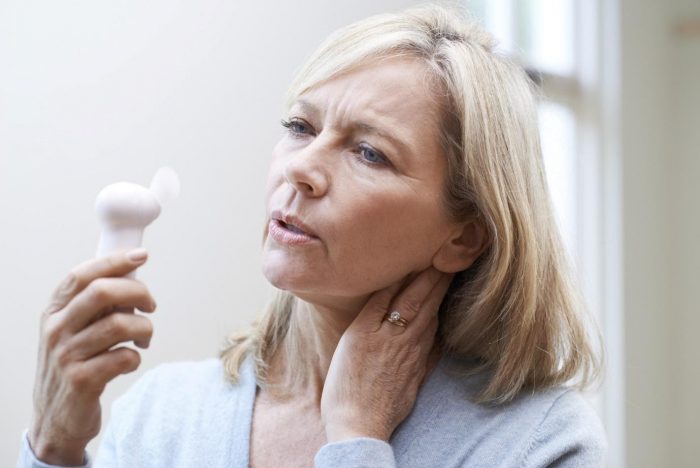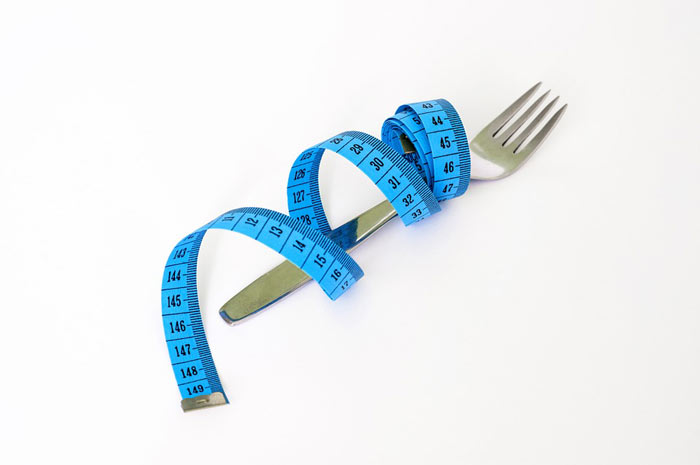Are you a woman approaching “the change” in your life? Are you wondering what to kind of symptoms you’ll experience? If so, you’re not alone. The average woman will reach menopause at 51 years old, but you may experience some menopause symptoms for years before (or after) the change occurs.

It’s true that no two women have exactly the same experience during this transition. However, there is a list of menopause symptoms to get familiar with so you’ll understand any changes in your body.
If you’ve been looking for a reliable menopause guide, look no further. Keep reading for everything you need to know!
What Is Menopause?
Menopause is a normal biological process that every healthy woman experiences. It’s your body’s natural way of transitioning out of your fertile years. It’s not a quick or sudden process — it happens gradually over many years.
As your body moves closer to this stage of life, your ovaries produce less estrogen and progesterone. (Interestingly, your adrenal glands take over hormone production once you’ve entered menopause). Your menstrual cycle will become more erratic as your body releases fewer eggs before it eventually stops altogether.
The three main stages of menopause are:
- Perimenopause (symptoms may appear 5-10 years before true menopause)
- Menopause (when you haven’t had your period for 12 months)
- Postmenopause (the stage of your life when you’re no longer fertile)
Most women start noticing symptoms of perimenopause in their 40s. As we’ll discuss below, the symptoms of perimenopause and true menopause often overlap. When you stop having your period for over a year, you’ve officially “entered” menopause.
Complete List of Menopause Symptoms

Now that you’re more familiar with what menopause is, let’s dive into our list of menopause symptoms. Keep in mind that you may experience some of these, all of these, or just a few!
1. Hot Flashes
Hot flashes are probably the most notorious signs of menopause. Your body suddenly overheats, you start sweating, and your face and neck flush bright red. The flash may disappear as quickly as it appeared, perhaps leaving you chilled.
Spicy foods, alcohol, and caffeine are common triggers for hot flashes. The root of the symptom, however, is a decrease in the hormones that help to regulate your body temperature.
2. Night Sweats
Two terms that are also synonymous are night sweats and menopause. As the name suggests, night sweats are hot flashes that occur while you’re sleeping.
It’s not uncommon for menopausal women to wake up in the middle of the night drenched in sweat, regardless of the room’s temperature. Frequent night sweats may lead to insomnia and other sleep difficulties during this time.
3. Irregular Menstrual Cycle
During perimenopause, you’ll start “skipping” periods. You may not have a period for a few months, then they’ll suddenly start up again. Your cycle might also become lighter or heavier than it used to be.
An irregular cycle is a normal part of perimenopause. When you’ve gone 12 months without your period, you’ve entered true menopause.
4. Vaginal Dryness
Fluctuations in your hormone levels often result in vaginal dryness. This is due to a lower level of estrogen, which normally produces adequate lubrication for your vagina.
For some women, this dryness makes sex uncomfortable or even painful. Use a high-quality lubricant to combat the issue, or talk to your doctor about options for hormone replacement therapy.
5. Anxiety & Mood Swings
If you normally feel anxious or moody during PMS, you’ll likely carry on the tradition as you go through menopause. You may notice the swings are stronger or more erratic than when you were younger.
During this time, you might also experience panic attacks or episodes of depression. In fact, experts estimate that 38% of perimenopausal women show signs of clinical depression.
6. Bloating & Weight Gain

As you transition through middle age, your metabolism begins to slow. It’s common for women to gain five or more pounds during perimenopause, often around their midsection.
You might also notice bloating that lasts long after your period ends. If you haven’t already done so, now is the time to get into a good habit of eating right and exercising daily.
7. Headaches
Women are less likely to experience headaches as long as their hormone levels are steady. Since these levels start dropping and fluctuating during menopause, it’s common to have accompanying headaches (especially if you experience headaches with PMS).
8. Changes in Libido
Most women report a decreased sex drive as they enter their 40s and 50s. Research suggests that one in 10 women, however, may actually see an increase in their libido during these years.
Once again, hormones are to blame, although many women also lose interest in sex if they start gaining weight. Regain your confidence by taking steps to eat right, stay active, and keep your weight under control.
9. Brain Fog & Fatigue
As you go about your daily activities, your brain uses estrogen to burn glucose and help you stay focused. As your estrogen levels drop, so does your ability to focus for long periods of time.
You may feel fuzzyheaded during the day, even if you slept well the night before. You may also notice a dip in your energy levels as your body adjusts to the “new normal.”
10. Changes to Your Skin, Hair, & Nails
Hormonal changes can leave your skin feeling dry, flaky, or itchy. This is partly due to a drop in collagen, the protein that strengthens and moisturizes your skin.
Lower levels of estrogen and collagen can also lead to hair thinning and hair loss. You may also notice that your nails feel drier and more brittle.
Feel Confident With This Menopause Guide

As we mentioned at the outset, each woman has her own unique experience with menopause. You may experience some or all of these symptoms, or you may notice only a few.
To ensure you’re prepared, bookmark this list of menopause symptoms. That way, you can refer back to it anytime during the journey into your “golden years.”
Was this article helpful to you? Our site is full of great tips and advice, so keep browsing!











